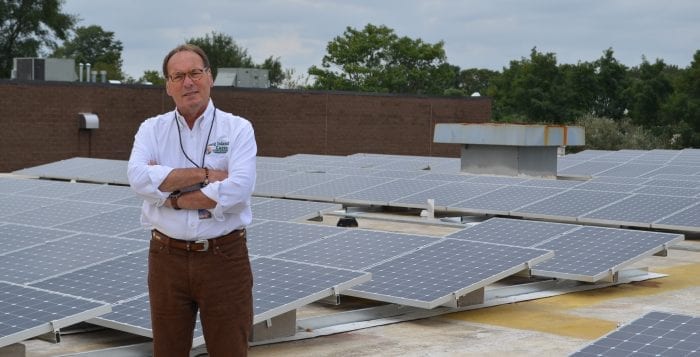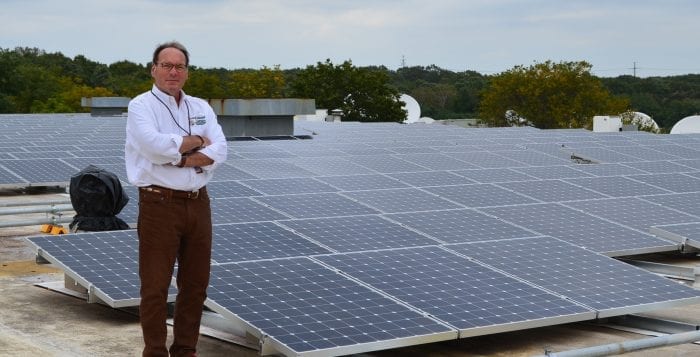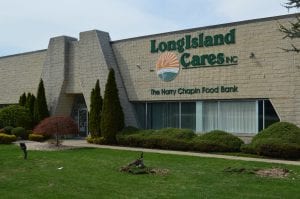On Long Island, 89,030 children go hungry. Who’s counting?
Long Island Cares. Founded in 1980 by the late Grammy Award winning musician and activist Harry Chapin, the organization was Long Island’s first food bank. The nonprofit group provides nutritional aid to more than 580 community-based member-based agencies to distribute more than six million pounds of food each year. The food bank’s accomplishments are extraordinary. But in 2019, the charitable organization also stands out for expanding its services to address an array of causes.

LI Cares installed solar panels on the roof of its 35,000-square-foot Hauppauge warehouse to become the first community solar project in the Hauppauge Industrial Park. The energy it generates will be passed along to discount the electric bills for around 40 households suffering hardship. The system is set to activate in time for the new year.
“The LI Cares solar project is significant in so many ways,” said SUNation Solar System’s co-founder and CEO Scott Maskin. “While it’s not the first community solar project on Long Island, it is the first one in the Hauppauge Industrial Park, now known as The Long Island Innovation Park at Hauppauge.”
Sandy Chapin, wife of the late Harry, who co-wrote with him the gold record song “Cat’s in the Cradle,” serves as chairperson of the group’s board.
Paule Pachter has served for the last 11 years as the group CEO and said that the organization addresses the humanitarian need of veterans, immigrants, seniors and others struggling with economic and social challenges.
SUNation Solar Systems installed the solar project and Maskin compliments the organization for its leadership.
“Paule Pachter is a leader by nature and was the first to engage in the Hauppauge Industrial [Association] power project which aims at transforming the park into a 100 percent renewable park by 2040,” he said. “More importantly is that the power generated from the LI Cares roof will be strategically directed to those most vulnerable and those with food insecurity. As Paule always says, ‘It takes more than food to feed the hungry.’”
For the 50 or more families that will be receiving discounted energy to their homes, their savings of $0.05 per kilowatt hour will go toward meeting their other needs, Pachter said.
This project is designed to provide benefits for 25 years or more, according to Maskin.
“This is a project that would not have come together without the laser focus and direction of Paule, his amazing board of directors, the efforts of LIPA, PSEG and the HIA-LI,” Maskin added. “We at SUNation are humbled to play our role with LI Cares. While we design and install so many projects on Long Island, this one is truly special.”







